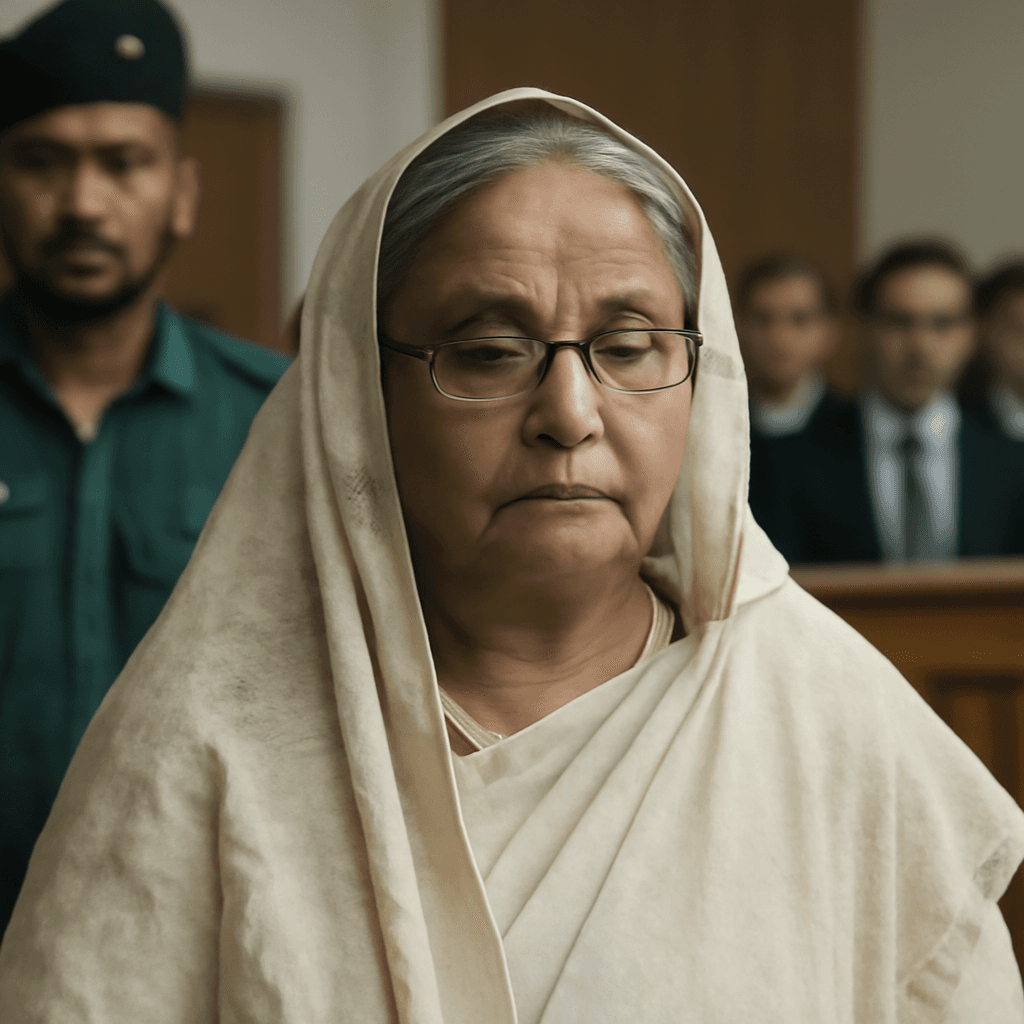The Historic Irony of Sheikh Hasina's Trial
Sheikh Hasina, the former Prime Minister of Bangladesh, now stands accused of crimes against humanity before the International Crimes Tribunal (ICT) — the very institution she established in 2009 to prosecute war criminals from the 1971 Liberation War. This unprecedented development marks a dramatic reversal of roles, casting Hasina not as the architect of justice but as a defendant facing serious allegations related to recent internal conflicts.
Background: Hasina's Political Tenure and Ouster
Hasina served as Bangladesh’s Prime Minister for a cumulative 15 years until her ousting in August 2024. Her administration was marked by efforts to hold accountable those responsible for wartime atrocities through the ICT, a domestic court designed to address historical crimes against humanity. The irony now lies in the fact that this tribunal is preparing to prosecute her for alleged abuses during a 2024 student-led protest crackdown.
Details of the Allegations
An investigation submitted on May 12, 2025, accuses Hasina of orchestrating a coordinated and forceful response against student demonstrators across Bangladesh in July and August 2024. The charges portray her as the "mastermind, conductor, and superior commander" behind the violent government crackdown, which reportedly involved:
- Mass killings and severe injuries inflicted on protesters
- Incidents of sexual violence
- Incineration of bodies
- Denial of medical care to the wounded
The United Nations estimates that approximately 1,400 people lost their lives during the three-week period, an alarming figure that drew widespread international condemnation.
Political Changes and Judicial Proceedings
Following Hasina’s removal, Nobel laureate Muhammad Yunus assumed the role of interim Prime Minister. The new administration has taken several decisive steps including:
- Outlawing the Awami League, the former ruling party
- Amending national laws to enable prosecution of former government officials including Hasina
Yunus also proposed broadcasting the trial live, a controversial move seen by some as a tool to assert his government’s legitimacy and transparency. Conversely, critics argue this could politicize the judicial process, overshadowing impartiality with spectacle.
Controversies Surrounding the International Crimes Tribunal
Since its inception, the ICT has attracted criticism regarding its impartiality and political motivations. Its past trials primarily targeted leaders from opposition factions such as Jamaat-e-Islami and the Bangladesh Nationalist Party. Hasina’s administration had often defended the tribunal as a necessary step for justice, especially against Islamist groups accused of war crimes. The current case starkly contrasts this earlier stance, reflecting the complex and contentious nature of Bangladesh's political and judicial landscape.
Implications for Bangladesh’s Future
The trial of Sheikh Hasina carries significant political weight, presenting both legal and symbolic dimensions. It raises pressing questions about:
- Accountability for state violence against civilians
- The independence and credibility of the ICT
- The evolving dynamics of Bangladesh’s political power structure
Whether the process will ultimately represent genuine justice or perpetuate political rivalry remains to be seen, but it undeniably marks a critical chapter in the country’s ongoing pursuit of reconciliation and rule of law.

